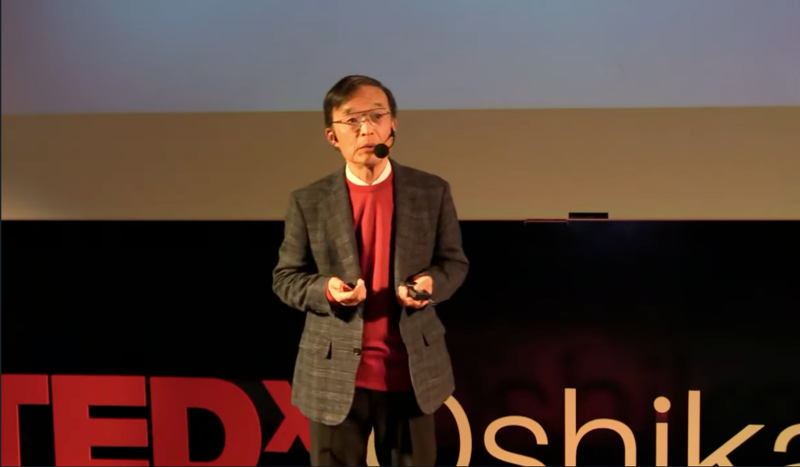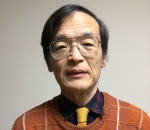以下は大雑把な英語版です。知ってる内容を英語ルートで理解。洋画で字幕を読んで英語を聞くように。
日本語の内容はこちらから
↓ ↓ ↓
https://worldlife.jp/archives/12387
(This version is very close to, but not identical with, what I actually said.)
Today I will speak about two things: one:direct reading and two: its benefits
I chose these two topics because direct reading is how I learn foreign languages: French, German, Spanish, Latin,… and how I would have liked to teach if I had known its benefits earlier.
<basics of direct reading>
First, I’ll speak about direct reading. (Direct reading is reading a text written in a foreign language without translating into your mother tongue.)
Now, let me ask you a question. Here is a word “fire” , now how did you react when you saw it? You have two choices. One: to have the mental image of fire, flame, warmth, smell. Two: to see the Japanese word火, fire in your mind.
If you chose the first, you have less difficulty mastering direct English reading, for that’s its essence; look at the word (or phrase or sentence), and have its mental image in your head, and sensations and feelings, without translation. This is the route of direct reading of English, and this is the indirect route.
I’ve talked about the basics of direct reading.
<a hidden aspect of direct reading>
Now I’ll speak about the second topic:the benefits of direct reading. Before that, I’ll speak about the benefits of inner silence of language. I’ll explain it further. It’s about here. It’s about this route being closed during direct reading.
Now this is the most important thing in my speech. “When you read English directly, Japanese is silenced in your mind.” This silence of Japanese in your head is what I will speak about.
Now I’ll tell you why I can speak about such a thing.
Well, I don’t know. I only ask you to believe me when I say this: I have read English directly for 50 years, so I have silenced my Japanese in my mind for 50 years, and now can do it quite easily. And I experienced two benefits of silence in my head.
<first benefit of inner silence>
Now, the first benefit of inner silence.
I went to see a dentist and there, I silenced my Japanese in my head. I found the dental treatment much less, half as painful as usual. Why could it be? If you are easily scared like me, you may say to yourself on the dentist’s chair, “It’s gonna hurt, hurting,it hurt.”
Come to think of it, these words I used now, hurt, hurting, or 痛ェare all words. Suppose you didn’t have these words available, ready to be used? It would be very hard (not to say impossible) to feel pain itself, wouldn’t it? That’s what happened to me. Silencing Japanese made it difficult to feel pain itself, and as a result reduced my pain I felt.
That is the first benefit of inner silence. better control of your emotions or pains
<second benefit of inner silence>
Now, the second benefit of inner silence. It’s good ideas. Original very good ideas come across my mind more frequently. For example, I hit upon a “very original” title (Between Languages) for my speech. If that’s the case, how can that happen?
Well, that’s because language is a no-choice system. Take any word, for example, a cat.
You must call a cat a cat. You have no choice. Everything is forced on you. French philosopher likened language to a prison. In a prison, your flexibility or creativity is easily stifled or suppressed.
That’s why verbal silence in your mind helps make you more flexible and open to new ideas or insights. I’ve talked about two benefits of inner linguistic silence: better control of emotions and pains, and good ideas or insights.
<further implications>
Now I will take a very broad perspective. These benefits are nothing new. They were enjoyed and utilized more often than you might think, perhaps.
Founders of world religions were all born and lived with a number of different languages spoken all around, Jesus, Shakyamuni, Confucius, and Socrates, (philosophers, too) for example. Perhaps, foreign languages played a far more significant role in history than is generally thought.
Finally, can I ask you a favor? Will you practice direct reading of English or silencing your Japanese, and see what will happen? You may be surprised.
私立学校に英語教師として勤務中、40代半ばに差し掛かったころ、荒れたクラスを立て直す策として、生徒に公言して英検1級に挑戦することを思い立つ。同様の挑戦を繰り返し、退職までに英検一級(検定連合会長賞)、TOEIC満点、国連英検SA級、フランス語一級、スペイン語一級(文科大臣賞)、ドイツ語一級、放送大学大学院修士号などの成果を得る。
アメリカで生徒への対応法を学ぶ為に研修(地銀の助成金)。最新の心理学に触れた。4都県での全発表、勤務校での教員への研修を英語で行う。現在も特別選抜クラスの授業を全て英語で行っている。「どうやって単語を覚えればいいですか?」という良くある質問に答える為、印欧祖語からの派生に基づく「生徒には見せたくない語源英単語集」を執筆中。完成間近。常日頃洋書の読破で様々な思考にふれているが、そうして得た発想の一つを生かして書いた論文がコロナ対策論文として最近入賞。賞品の牛肉に舌鼓をうっている。元英検面接委員


